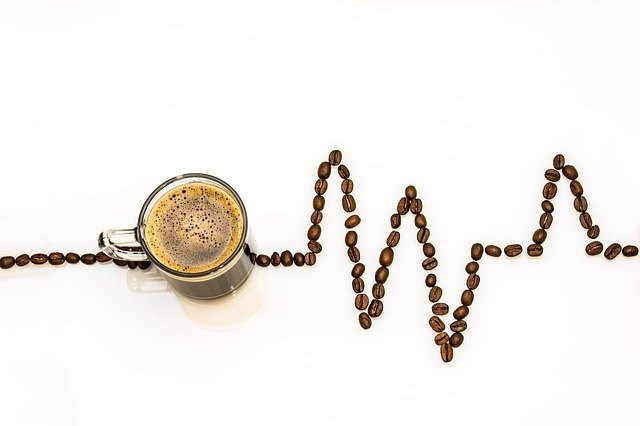With the start of the new year, comes those New Year’s resolutions and goals – which I’m hoping that everyone is staying on track with. For me personally, I keep track of my goals and using a journal and planner that I use on a daily basis – with a cup of coffee right by my side.
Usually when I’m working on my hobbies, side hustles or other personal projects, I get a good rush of dopamine from these activities. Between the dopamine and caffeine, it’s a no-win situation for me, especially if I’m looking to get things done.
But will the caffeine have any effect on my dopamine level?
What is dopamine?
Dopamine is a neurotransmitter that activates pleasure centers in certain parts of the brain. There are certain substances that can have an effect on us by manipulating our dopamine levels. Heroin and cocaine affect our dopamine levels by slowing down the reabsorption rate, whereas foods like chocolate and coffee can actually increase our dopamine levels.

Caffeine is actually working to block adenosine – the sleep-inducing molecule in our bodies that makes us sleepy. At the same time, it gives us that extra ‘kick’ of adrenaline, while aiding our dopamine levels to make us feel good.
This is why after having those first few sips of coffee, we get that good feeling in us. That adrenaline boost!
Can caffeine help to release dopamine?
This is an interesting question for me because I’m one of those coffee drinkers who believes in enjoying a good cup of coffee. But I also enjoy it while doing something that I love.

One of my hobbies is of course – blogging – which can give me a good dopamine hit. But the cup of coffee at my side while I’m blogging? That’s like topping off the gas tank for me. I’m bound to go the distance with my writing, remain focused and passionate about doing it, and be rewarded for sticking to it once it’s done.
If I’m working on something that I’m passionate about, I’m bound to be ‘locked-in’. And the bonus of having caffeine at this moment is going to make sure I don’t doze off.
In fact, a study that was published in Translational Psychiatry in April 2015 indicated that caffeine blocks adenosine receptors, which benefits the dopamine signaling in our nervous system. One more reason to enjoy the cup of coffee!
The effect of caffeine on our dopamine levels
Although a healthy dose of caffeine may seem like a good thing – we can also have caffeine crashes if we take in too much of it. Too much caffeine actually causes dopamine in our neurons to become depleted. As a result, we’re not in such a great mood as we were a few hours ago when our levels were high. This is all a part of the energy crash that we experience hours after the caffeine wears off.
I know that I’ve experienced some of these effects. This is why I’m very mindful of my caffeine intake, and how much coffee I drink during the day, which I talked about in an earlier post.
I try to minimize my caffeine intake underneath the daily recommended amount of 400 mg so that I won’t ever hit that wall. I also want to make sure I can feel tired and sleepy at night. It also helps to get the caffeine out of my system by then, allowing the adenosine to kick in – all for a good night sleep!
Adrenaline and Caffeine Addiction
All of my life, since I’ve first started drinking coffee, I can’t remember the last time I’ve went a day without at least having one single cup of coffee. And I naturally know what my limit is – especially if I hope to get a good night sleep every evening, while reaping some positive benefits of coffee.
I’ve actually been fortunate, because a much as I love having my coffee and appreciate the added benefits from caffeine, I’m surprised that I’ve not formed an addiction to it. But can too much caffeine have an effect on us? or our dopamine levels?
Think about what happens whenever we drink a cup of coffee. It fights off the sleepy feeling – caused by adenosine, making us more awake, and alert.

This sudden boost can have a positive effect on our cognitive skills, helping us to think more clearly. Caffeine also helps to improve our physical performance as well. I’ve even taken a couple of small sips of coffee before a workout, and have noticed how my performance has improved, with better mental clarity.
But the stimulating effects of coffee won’t last forever. The effects of caffeine will wear off after six hours, and leave us wound down, tired and fatigued. That’s the sleep inducing chemical adenosine building back up, letting our body know that it’s time to shut down.
So what do we do to fight this? We reach for another cup of joe! And if we keep reaching for more coffee over and over, this can increase that dopamine release, along with catecholamine hormones.
The important thing to remember is that adrenaline follows dopamine. Our hearts will start to beat a little faster, our muscles will get jittery and very anxious. We will definitely have a hard time relaxing and falling asleep on this level!
Caffeine Withdrawals
Eventually, long term uses of caffeine can eventually end up depleting our dopamine levels which can result in lower tolerance and withdrawal symptoms. This means it would take even MORE coffee for me to see any effects of feeling good from dopamine.

We want to make sure we keep our caffeine intake somewhere around the recommended daily intake and never over use it. Addiction to caffeine isn’t something that we should take lightly.
Along with going overboard on caffeine, we need to take into account our diet, sedentary lifestyle and stress levels and how we’re managing this – which can end up having a negative effect on our dopamine levels if we’re not careful.

